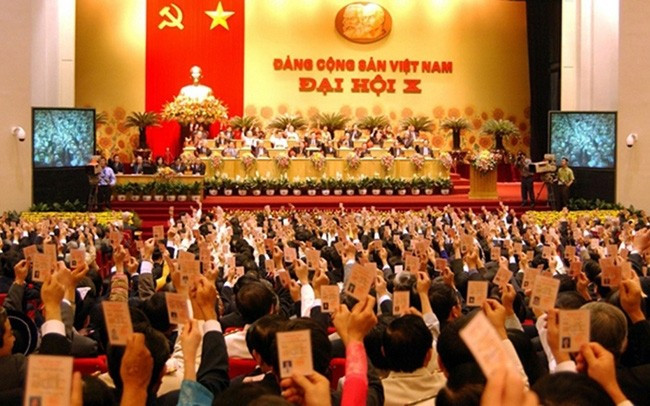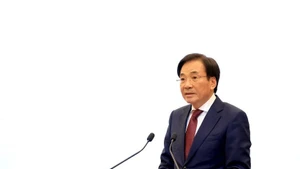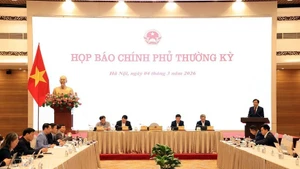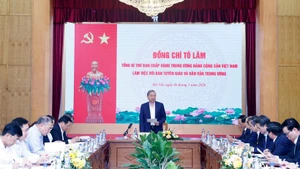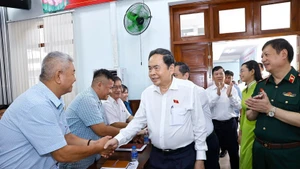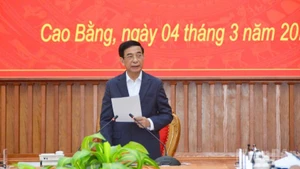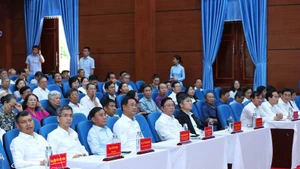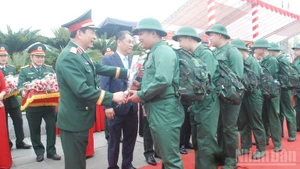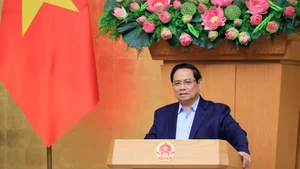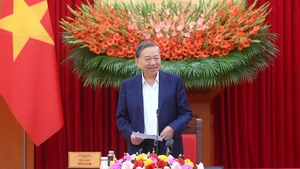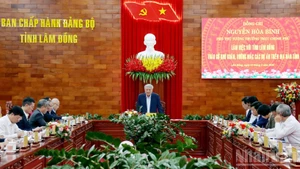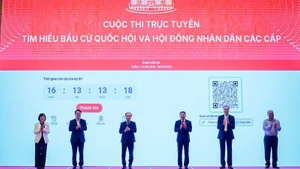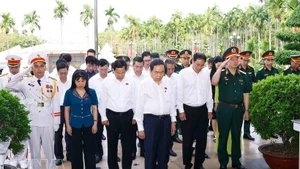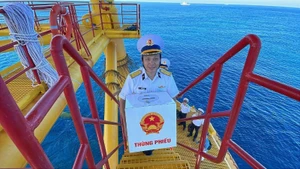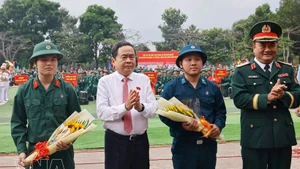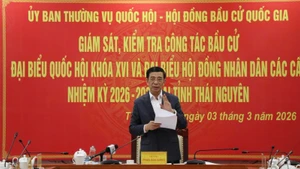The congress comprehensively reviewed the implementation of the Resolution of the 9th National Party Congress as well as the 10-year socio-economic development strategy (2001–2010) and reflected on 20 years of Doi Moi (Renewal). It also set out orientations, goals, and development tasks for the 2006–2010 period.
Looking back on two decades of renewal (1986–2006), the congress affirmed that with the concerted efforts of the entire Party, people, and army, the renewal process had achieved great and historically significant accomplishments.
The country had overcome socio-economic crisis, witnessing fundamental and comprehensive transformations. The economy grew rapidly while the cause of industrialisation and modernisation and the development of a socialist-oriented market economy were strongly promoted. People’s living standards improved remarkably; the political system and great national unity were strengthened; socio-political stability was maintained; and national defence and security were safeguarded. Viet Nam’s international standing continued to rise. The overall strength of the nation increased significantly, creating new momentum and potential for further development with promising prospects.
Perceptions of socialism and the path toward socialism became clearer. The theoretical framework for renewal, for a socialist society, and for the path towards socialism in Viet Nam had been fundamentally shaped.
The general objectives and orientations for the 2006–2010 period were to enhance the Party’s leadership capacity and combat strength; promote the strength of the entire nation; comprehensively accelerate the renewal process; mobilise and efficiently utilise all resources for industrialisation and modernisation; develop culture; ensure social progress and justice; strengthen national defence and security; expand external relations; actively and proactively integrate into the global economy; maintain political and social stability; and quickly bring Viet Nam out of underdevelopment, laying the foundation for Viet Nam to basically become an industrialised nation oriented toward modernity by 2020.
Regarding Party building, the congress emphasised the need to devote substantial effort to achieving tangible progress in this work — upholding the revolutionary tradition, working-class nature, and pioneering spirit of the Party; building a truly pure and strong Party in terms of politics, ideology, and organisation; and ensuring high unity and solidarity, maintaining a close bond with the people, adopting scientific leadership methods, and developing a cadre and membership contingent with sufficient integrity and competence.
The congress adopted the full text of the Party Charter (revised and supplemented).
It elected the 10th Party Central Committee (PCC), consisting of 160 official and 21 alternate members. The PCC then elected the Politburo with 14 members and the Secretariat with 8 members.
Comrade Nong Duc Manh was re-elected as General Secretary.
The 3rd Plenum of the 10th PCC (July 24–29, 2006) adjusted and assigned duties within the Secretariat.
The 9th Plenum of the 10th PCC (January 5–13, 2009) elected one additional member to the Politburo and two to the Secretariat.
(Compiled from the Complete Collection of Party Documents; Nhan Dan Newspaper; https://tulieuvankien.dangcongsan.vn)
GENERAL CONTEXT
* 2006: Viet Nam officially joined the World Trade Organization (WTO).
* April 18–25, 2006: The 10th National Party Congress — Congress of wisdom, renewal, solidarity, and sustainable development.
* 2006–2010: GDP grew at an average annual rate of 7%, despite the global financial crisis.
* 2007: Viet Nam served for the first time as a non-permanent member of the UN Security Council.
* 2010: Per capita GDP reached 1,168 USD, surpassing the set target.
DOMESTIC SITUATION
After 20 years of Doi Moi (Renewal), Viet Nam’s position and strength grew significantly. The expansion of international cooperation, together with proactive and active economic integration and the maintenance of a peaceful environment, created many favourable conditions for the Vietnamese people to advance reformation and socio-economic development at a faster pace.
However, the country faced many major challenges: the risk of falling further behind economically compared to other nations in the region and the world; signs of political, ideological, moral, and lifestyle degradation among a portion of cadres and Party members; and hostile forces continuing to carry out “peaceful evolution” plots, inciting riots and subversion in an attempt to undermine the political regime in Viet Nam.
Specific targets for the 2006–2010 period included achieving annual GDP growth of 7.5–8%, reaching per capita GDP of 1,050–1,100 USD, reducing the agricultural labour force to below 50%, the creation of 8 million new jobs, and lowering the national poverty rate to 10–11%.
Overcoming the 2008–2009 crisis — despite being severely affected by the global financial crisis, Viet Nam managed to maintain positive growth and macroeconomic stability.
INTERNATIONAL CONTEXT
Economic globalisation created opportunities for development but also brought inequalities and major challenges for many nations, especially developing countries.
Economic and trade competition among nations became increasingly fierce.
Meanwhile, local wars, armed conflicts, ethnic and religious tensions, arms races, interventions, subversion, separatist movements, terrorism, and disputes over borders, territories, seas, islands, and natural resources continued to erupt in many parts of the world with growing complexity.
In 2006, Viet Nam officially became the 150th member of the World Trade Organization (WTO), marking a milestone in the country’s deep international economic integration.
Global financial crisis of 2008 — originating in the United States —quickly spread, becoming the most severe global financial and economic downturn since 1929.
Enhanced international standing — Viet Nam served as a non-permanent member of the United Nations Security Council (2008–2009), assumed the ASEAN Chairmanship in 2010, and successfully hosted numerous major international events.
